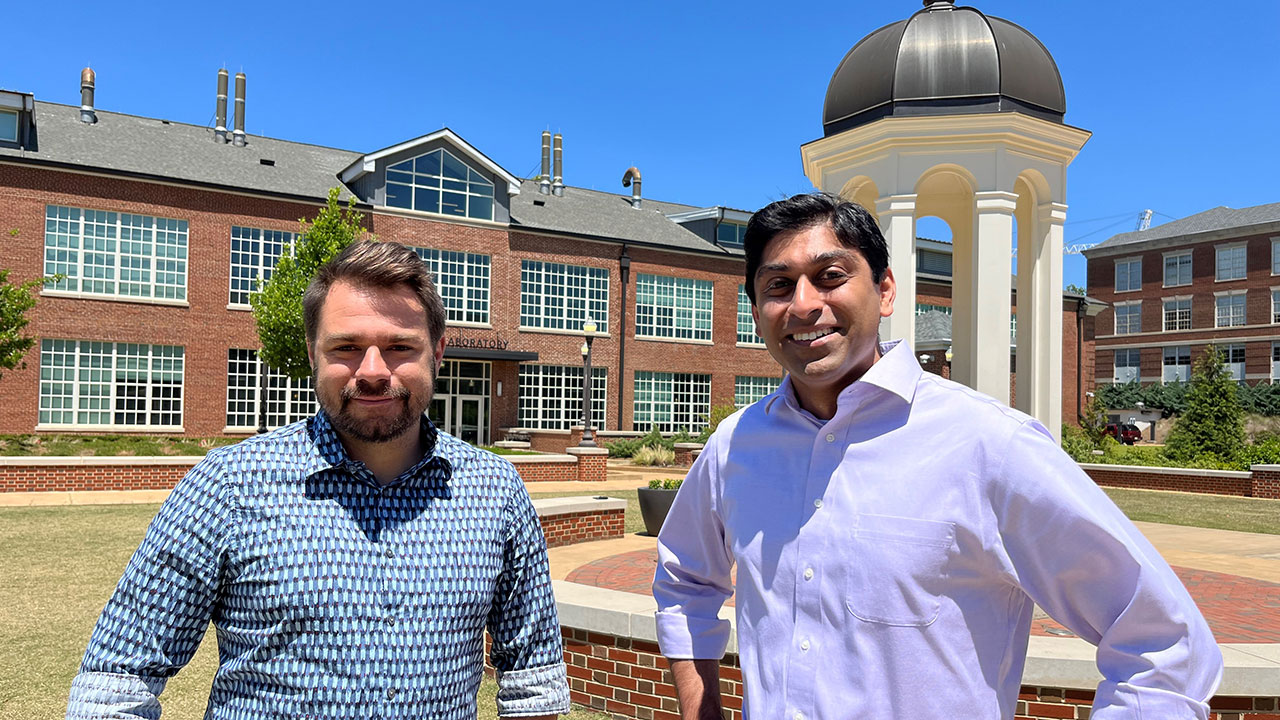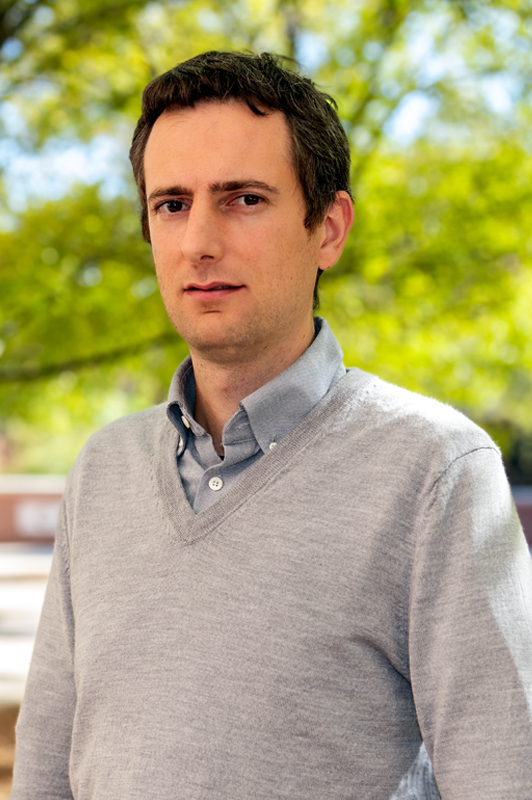Aerospace engineering graduate students awarded DoD SMART Scholarships
Published: May 11, 2023 9:00 AM
By Joe McAdory
Two graduate students in aerospace engineering, Alton Stoute and Rehman Qureshi, were recently awarded Department of Defense Science, Mathematics, and Research for Transformation (SMART) Scholarships.
SMART Scholarships provide students with full tuition for up to five years, mentorship, summer internships, a stipend and full-time employment with the Department of Defense after graduation. Students are offered hands-on experience at one of more 100 innovative laboratories across the Army, Navy, Air Force and greater Department of Defense locations.
Stoute, a second-year graduate student from Opelousas, Louisiana, examines the materials/structures side of aerospace engineering, and will begin a 12-week study at the U.S. Army Research Lab Proving Grounds in Aberdeen, Maryland, in August before returning to Auburn for semester course work and remote internship work.
“This is probably the biggest achievement I have made scholastically in my life,” said Stoute, who earned his undergraduate degree in chemical engineering from the University of South Alabama and works as a graduate research assistant in Vinamra Agrawal’s Mechanics of Materials Laboratory. “This helps me to prove all of those people who supported me that I was worth the effort in the mentoring that they provided.”
Agrawal, assistant professor of aerospace engineering, said Stoute demonstrates “impressive learning skills, hard work, and a passion for research.”
“Alton is a hard-working and bright student with a promising future ahead of him,” said Agrawal. “It's a rare honor to receive such a prestigious scholarship. I am grateful to the SMART scholarship and Army Research Laboratory for supporting Alton in his research career. During his Ph.D., he will work on developing novel tools to analyze and design shock-resistant materials which can be used for aerospace, defense, and infrastructure applications. I am confident he will make significant scholarly contributions to the scientific and engineering community during and beyond his Ph.D.”
At the U.S. Army Research Lab Proving Grounds, Stoute said he expects to continue work on atomistic simulations or composite alloy work.
“Auburn has done an outstanding job of not only making sure we understand the fundamentals of our engineering disciplines, but also moving beyond what normal engineering does,” Stoute said. “We’ve focused on the theoretical and computational standpoints, giving us the opportunity to branch out to different problems that no one has faced. This works out great for graduate students who tend to tackle these unknown problems.”
Qureshi, a third-year graduate student from Dothan, Alabama, and graduate research assistant in Aerospace Engineering Assistant Professor David Guzzetti’s 3i Space Dynamics Laboratory, begins his scholarship this August. He will interface with the Information Directorate of the Air Force Research Laboratory (AFRL) in Rome, New York, via 12-week on-site internships each summer throughout his PhD. The cornerstone of his time in New York is expected to involve the space economy via complex machine learning models.
“The educational foundation I’ve received in Dr. Guzzetti’s classes and Dr. Nan Li’s (assistant professor in aerospace engineering) reinforcement learning classes have prepared me well for this internship and research,” said Qureshi. “My research is in the development of business environments for low Earth orbit constellations. Essentially, what I’m trying to do is model the business and economics side of space logistics, these brand-new space companies like Space X. It’s uncertain how much money is in the space economy, so we’re trying to quantify this and understand associated economic strategies and secondary effects upon national security. That’s a Herculean task.”
Guzzetti said Qureshi possesses a “unique skillset that combines astrodynamics, reinforcement learning and modeling of complex socio-economic cyber-physical environments.”
“Such a skillset is enabling Rehman to establish some genuinely new understanding of pseudo-optimal strategies for the development and maintenance of complex systems in multi-agent settings, such as those rendering the coupled economic-cyber-physical dynamics for proliferated low Earth orbit (P-LEO) satellite constellations,” Guzzetti said.
“I am genuinely excited by the research direction Rehman has established because it will critically advance our understanding of the P-LEO environment and its societal and national security implications. The high logistical cost of maintaining infrastructure in an extreme physical environment and under competition for global common-pool resources, or orbit slots, combined with long lags for structural changes, or satellites need to be launched into orbit, renders P-LEO markets highly susceptible to events simultaneously impacting their economic-cyber-physical dynamics. Additionally, P-LEO assets operate in an environment threatened by over-exploitation due to resource depletion and pollutant accumulation. Therefore, securing P-LEO systems in all aspects is of paramount concern for national security.”
The Department of Defense is committed to developing the nation's STEM talent and is the largest employer of federal scientists and engineers with nearly 150,000 civilian STEM employees working across the department. For more than a decade, SMART has trained a highly skilled STEM workforce that competes with the evolving trends of industry to support the nation’s next generation of scientists and technologists.
Media Contact: , jem0040@auburn.edu, 334.844.3347





